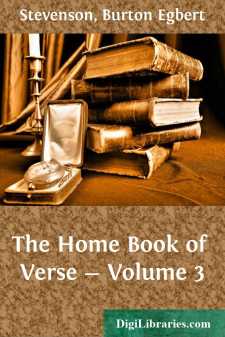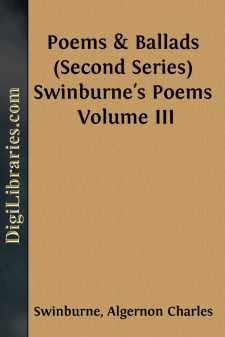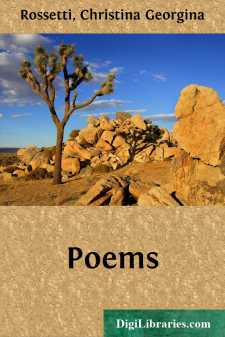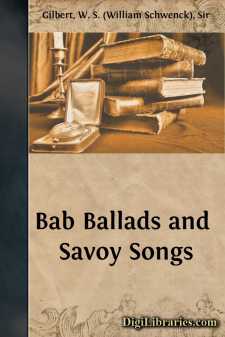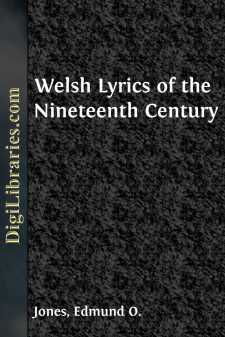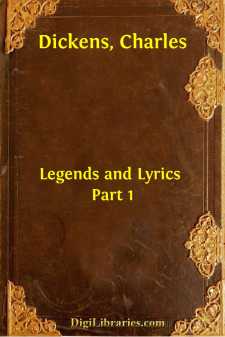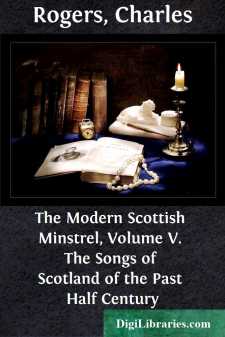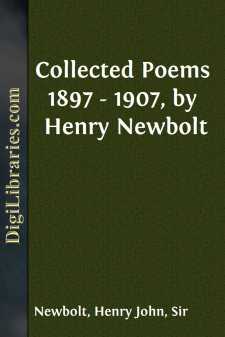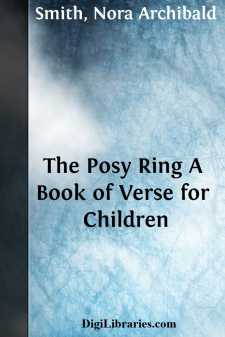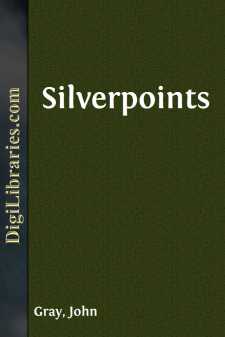Poetry
- American 96
- Ancient, Classical & Medieval 41
- Asian 15
- Australian & Oceanian 11
- Canadian 11
- Caribbean & Latin American 5
- Children's Poetry & Nursery rhymes 51
- Continental European 11
- English, Irish, Scottish, Welsh
- General 483
- Inspirational & Religious 7
- Middle Eastern 3
English, Irish, Scottish, Welsh Books
Sort by:
POEMS OF NATURE The world is too much with us; late and soon,Getting and spending, we lay waste our powers:Little we see in Nature that is ours;We have given our hearts away, a sordid boon!This sea that bares her bosom to the moon,The winds that will be howling at all hours,And are up-gathered now like sleeping flowers;For this, for everything, we are out of tune;It moves us not.—Great God! I'd...
more...
THE LAST ORACLE (A.D. 361)Years have risen and fallen in darkness or in twilight, Ages waxed and waned that knew not thee nor thine,While the world sought light by night and sought not thy light, Since the sad last pilgrim left thy dark mid shrine.Dark the shrine and dumb the fount of song thence welling, Save for words more sad than tears of blood, that said: Tell the king, on earth has...
more...
Morning and eveningMaids heard the goblins cry:"Come buy our orchard fruits,Come buy, come buy:Apples and quinces,Lemons and oranges,Plump unpecked cherries,Melons and raspberries,Bloom-down-cheeked peaches,Swart-headed mulberries,Wild free-born cranberries,Crab-apples, dewberries,Pine-apples, blackberries,Apricots, strawberries;--All ripe togetherIn summer weather,--Morns that pass by,Fair...
more...
THE YARN OF THE "NANCY BELL."'Twas on the shores that round our coastFrom Deal to Ramsgate span,That I found alone, on a piece of stone,An elderly naval man.His hair was weedy, his beard was long,And weedy and long was he,And I heard this wight on the shore recite,In a singular minor key:"Oh, I am a cook and a captain bold,And the mate of theNancybrig,And a bo'sun tight, and a...
more...
by:
Edmund O. Jones
ALUN. John Blackwell (Alun), was born of very poor parents at Mold in 1797. Beginning life as a shoe-maker, his successes at the Eisteddfods of Ruthin and Mold in 1823 attracted the attention of the gentry of the neighbourhood, and a fund was formed to send him to the University. He took his degree from Jesus College, Oxford, in 1828, and died rector of Manordeifi 1840. His works were published...
more...
by:
Charles Dickens
AN INTRODUCTION BY CHARLES DICKENS In the spring of the year 1853, I observed, as conductor of the weekly journal Household Words, a short poem among the proffered contributions, very different, as I thought, from the shoal of verses perpetually setting through the office of such a periodical, and possessing much more merit. Its authoress was quite unknown to me. She was one Miss Mary Berwick, whom...
more...
by:
Charles Rogers
Judging from a comparison of extant remains, and other means of information now available, it may be doubted whether any country has equalled Scotland in the number of its lyrics. By the term lyrics, I mean specifically poetical compositions, meant and suitable to be sung, with the musical measures to which they have been wedded. I include under the term, both the compositions themselves, and their...
more...
Drake's Drum Drake he's in his hammock an' a thousand miles away, (Capten, art tha sleepin' there below?)Slung atween the round shot in Nombre Dios Bay, An' dreamin' arl the time O' Plymouth Hoe.Yarnder lumes the Island, yarnder lie the ships, Wi' sailor lads a-dancing' heel-an'-toe,An' the shore-lights flashin', an' the...
more...
A YEAR'S WINDFALLS Who comes dancing over the snow, His soft little feet all bare and rosy? Open the door, though the wild winds blow, Take the child in and make him cosy.Take him in and hold him dear,He is the wonderful glad New Year.Dinah M. Mulock. Marjorie's Almanac Robins in the tree-top,Blossoms in the grass,Green things a-growingEverywhere you pass;Sudden little breezes,Showers of...
more...
by:
John Gray
LES DEMOISELLES DE SAUVE TO S. A. S. ALICE, PRINCESSE DE MONACO Beautiful ladies through the orchard pass;Bend under crutched-up branches, forked and low;Trailing their samet palls o'er dew-drenched grass. Pale blossoms, looking on proud Jacqueline,Blush to the colour of her finger tips,And rosy knuckles, laced with yellow lace. High-crested Berthe discerns, with slant, clinched eyes,Amid the...
more...


